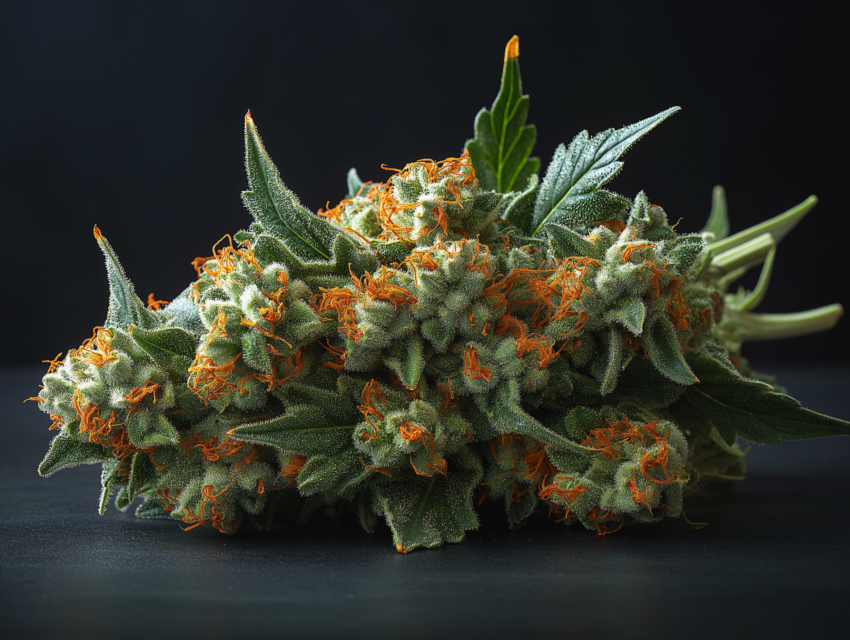In recent years, the interest in cannabis and its derivatives has surged, with many individuals exploring its potential health benefits. Among the various compounds found in cannabis, THCa (tetrahydrocannabinolic acid) has gained attention for its unique properties. Unlike THC, THCa is non-psychoactive, making it an appealing option for those seeking therapeutic effects without the high. This article delves into the wellness benefits of THCa flowers, supported by research and real-world examples.
Understanding THCa
THCa is a cannabinoid found in raw and live cannabis plants. It is the precursor to THC, the compound responsible for the psychoactive effects of cannabis. When cannabis is heated through smoking, vaping, or cooking, THCa converts to THC. However, when consumed in its raw form, THCa offers a range of potential health benefits without the psychoactive effects.
Non-Psychoactive Nature
One of the primary reasons individuals are drawn to THCa is its non-psychoactive nature. This characteristic allows users to experience potential therapeutic benefits without altering their mental state. This makes THCa flowers an attractive option for those who need to maintain clarity and focus throughout the day.
Potential Health Benefits of THCa
Research into the health benefits of THCa is still in its early stages, but preliminary findings suggest several promising applications.
Anti-Inflammatory Properties
Inflammation is a common underlying factor in many chronic diseases, including arthritis and inflammatory bowel disease. Studies have indicated that THCa may possess anti-inflammatory properties, potentially offering relief to individuals suffering from these conditions.
- A study published in the “Journal of Pharmacology” found that THCa reduced inflammation in animal models.
- Patients with arthritis have reported decreased joint pain and swelling after incorporating THCa into their wellness routine.
Neuroprotective Effects
Neurodegenerative diseases such as Alzheimer’s and Parkinson’s are characterized by the progressive loss of nerve cells. Research suggests that THCa may have neuroprotective properties, which could help slow the progression of these diseases.
- In a study conducted by the “British Journal of Pharmacology,” THCa demonstrated potential in protecting brain cells from oxidative stress.
- Case studies have shown improvements in cognitive function among patients using THCa supplements.
Anti-Nausea and Appetite Stimulation
THCa has shown promise in alleviating nausea and stimulating appetite, making it beneficial for individuals undergoing treatments such as chemotherapy.
- Research published in “Phytotherapy Research” highlighted THCa’s effectiveness in reducing nausea in animal models.
- Patients undergoing chemotherapy have reported increased appetite and reduced nausea after using THCa products.
Real-World Applications and Case Studies
Beyond scientific research, real-world applications and anecdotal evidence provide further insight into the potential benefits of THCa flowers.
Patient Testimonials
Many individuals have shared their positive experiences with THCa, particularly in managing chronic pain and inflammation. For instance, a patient with rheumatoid arthritis reported significant pain reduction and improved mobility after incorporating THCa into their daily regimen.
Success Stories in Neurodegenerative Conditions
Families of patients with neurodegenerative diseases have reported improvements in quality of life after introducing THCa. One case involved a Parkinson’s patient who experienced reduced tremors and improved motor function.
How to Use THCa Flowers
For those interested in exploring the benefits of THCa, there are several methods of consumption to consider.
Juicing Raw Cannabis
Juicing raw cannabis leaves and flowers is a popular method for consuming THCa. This approach preserves the compound’s integrity and allows for easy incorporation into daily routines.
THCa Tinctures and Capsules
For those who prefer a more convenient option, THCa tinctures and capsules are available. These products offer precise dosing and can be easily integrated into a wellness regimen.
Legal Considerations
The legal status of THCa varies by region, so it’s important to research local regulations before purchasing or using THCa products. In some areas, THCa is classified similarly to THC, while in others, it is considered a separate compound with different legal implications.
Conclusion
THCa flowers present a promising avenue for those seeking wellness benefits without the psychoactive effects of THC. With potential applications in reducing inflammation, protecting brain health, and alleviating nausea, THCa offers a versatile option for individuals looking to enhance their well-being. As research continues to unfold, the understanding of THCa’s full potential will likely expand, offering new opportunities for health and wellness.
